Text
Week 4
My code:
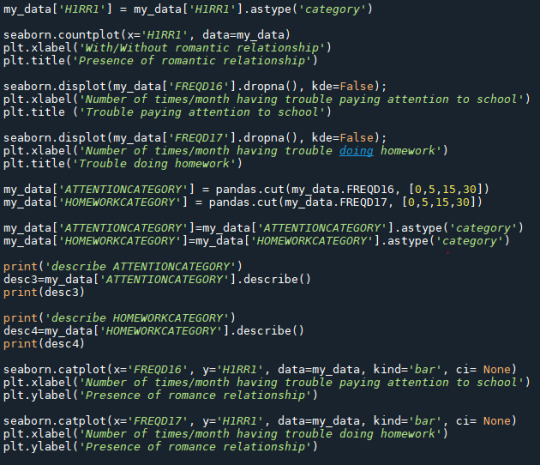
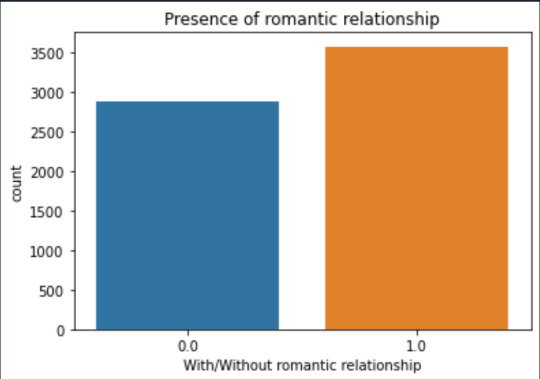
Among the respondents, there is not a significant difference between the two categories: having and not having a relationship.
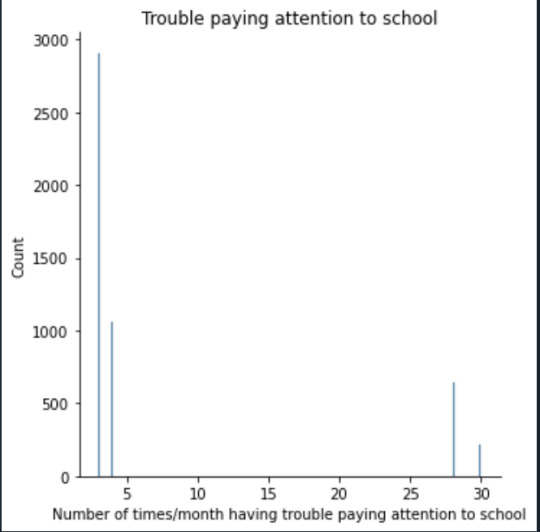
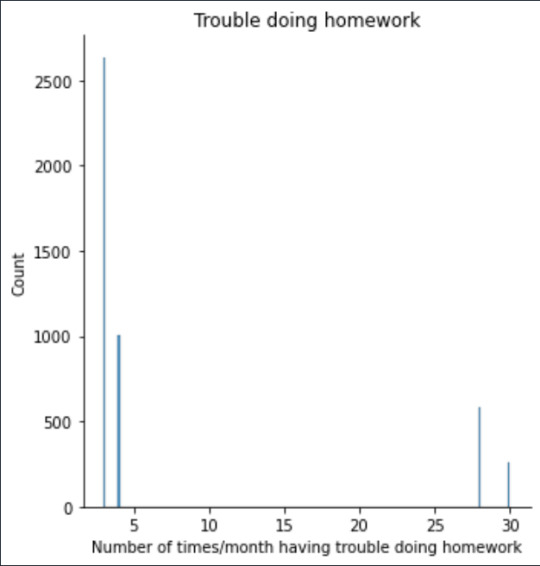
According to these two graphs, most of the respondents have quite a small number of times when they have trouble paying attention to school or doing homework. The majority of those having problems encounter them fewer than 5 times per month.
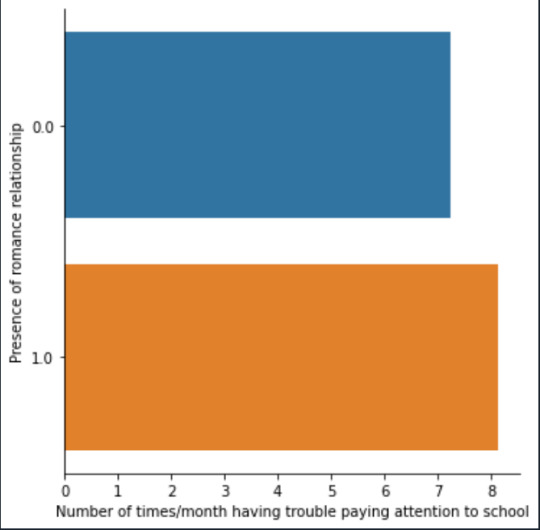
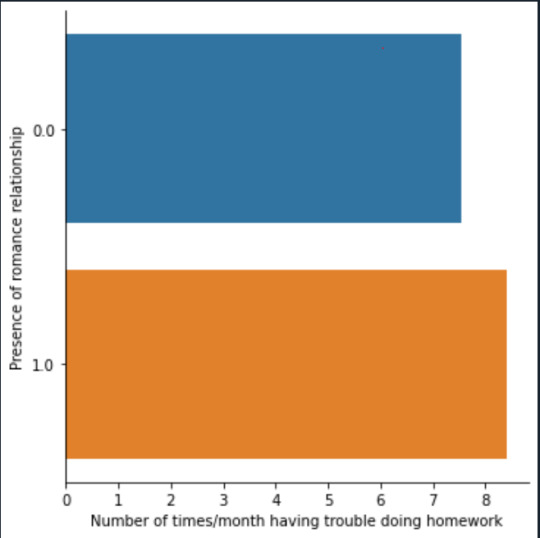
As seen from the two graphs above, it can be seen that there is not a big difference between having and not having a relationship in the number of times having trouble paying attention to school and doing homework.
0 notes
Text
Week 3
My code:
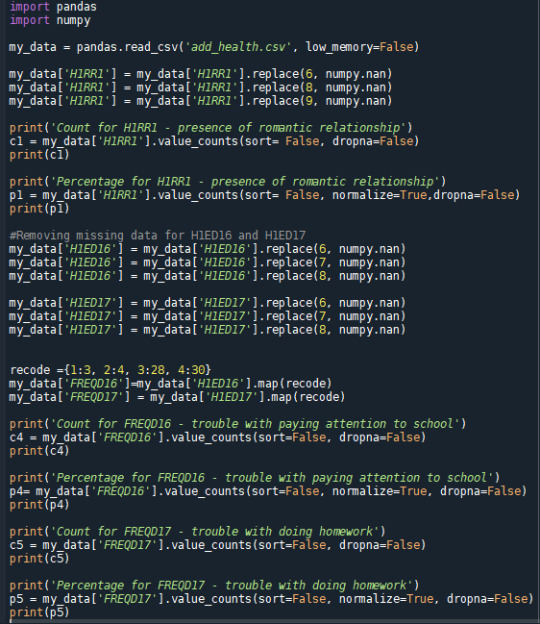
Output:
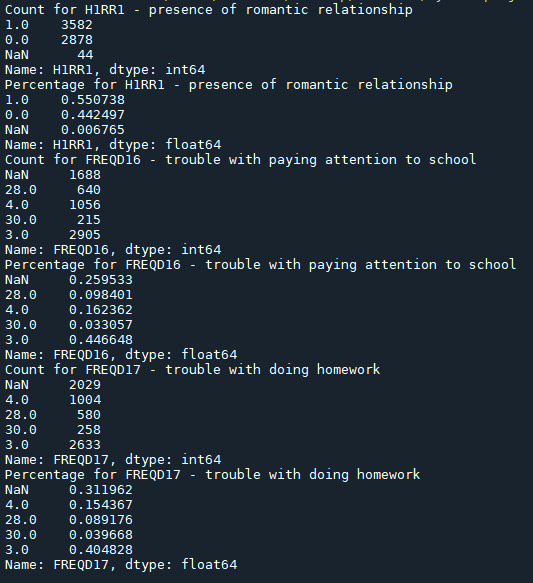
I have removed the missing data for H1RR1 (presence of romantic relationship: 1-yes, 0-no), H1ED16 (trouble with paying attention to school) and H1ED17 (trouble with homework). I also recoded H1ED6 and H1ED17 to be FREQD16 and FREQD17, which shows the frequency of these 2 variables categorized by number of times/month.
For H1RR1, about 55% of the students had a relationship and 44% did not. For FREQD16, 45% of the students had trouble paying attention to school about 3 times a month and 3% having trouble everyday. For FREQD17, 40% of the students had trouble doing homework about 3 times per month while only 4% had trouble everyday.
0 notes
Text
Week 2
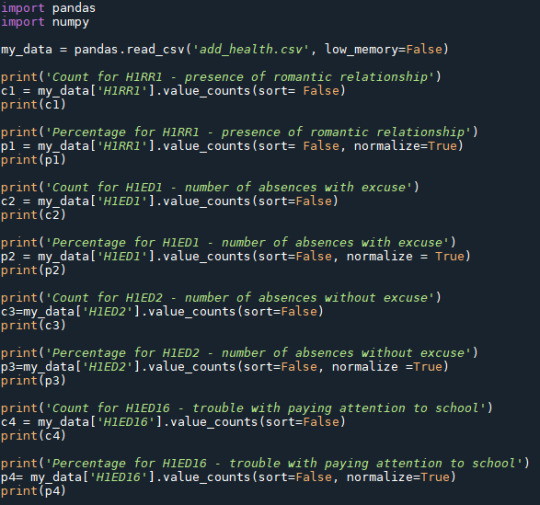
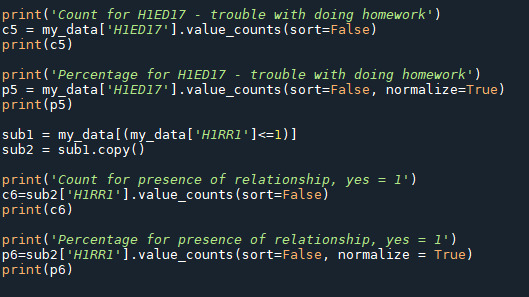
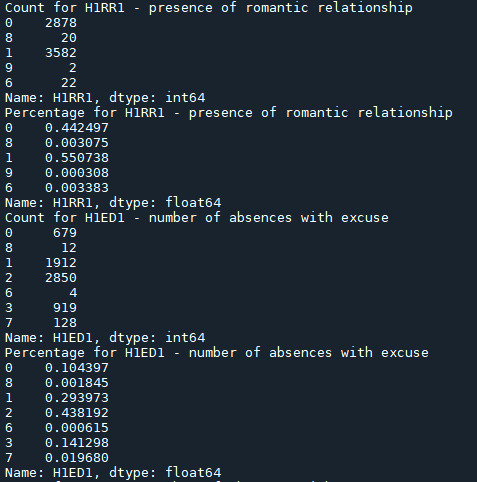
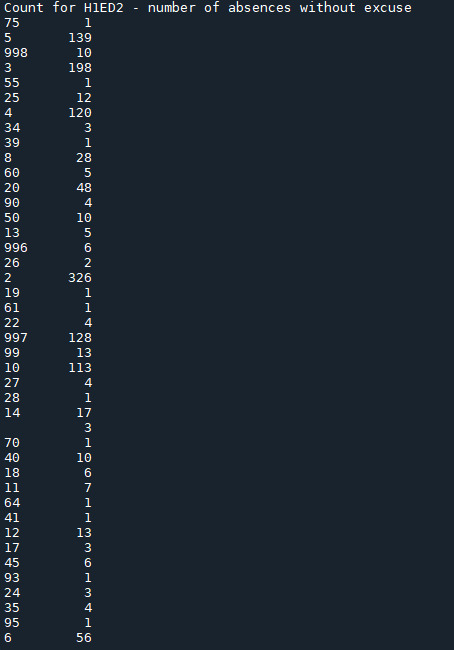
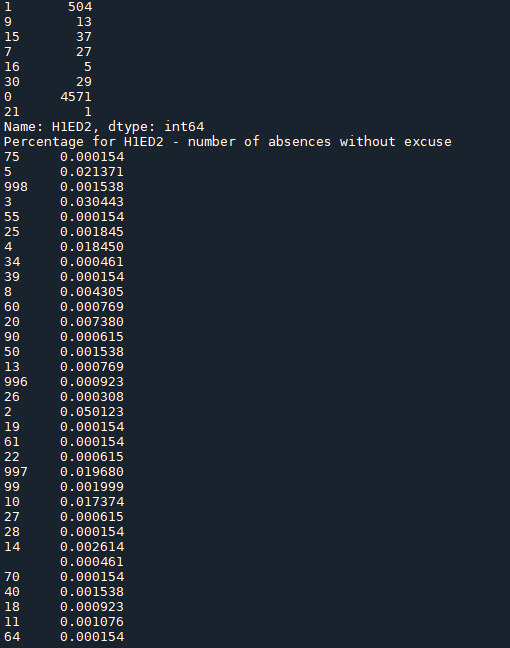
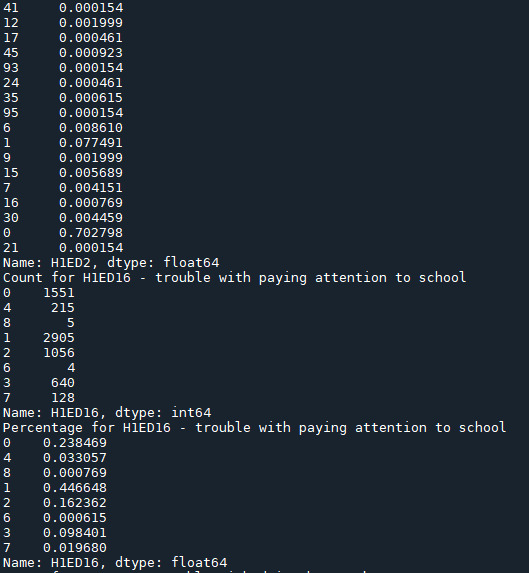
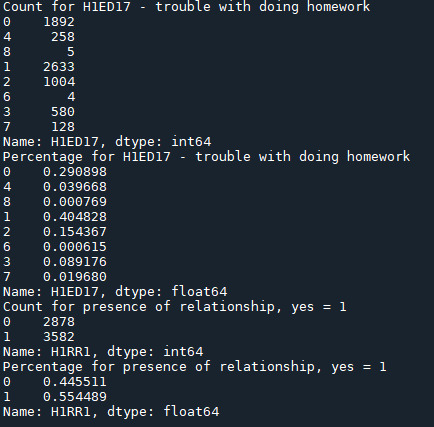
Of all the respondents, 3582 people (55%) have been in a relationship (answer = 1) and 2878 people (44.3%) have not (answer = 0). Other answers (6,8,9) are later eliminated from the subset created at the end of the code as they are not relevant to the research question.
Regarding having absences with an excuse, 2850 respondents answered 2, which is 3-10 times and account for the largest share of 43.8%. This is followed by 919 people who had 1-2 excused absences (answer = 1), making up 29.4% of the respondents.
For the question asking if the students have trouble doing homework, the majority (40.5%) answered only a few times (answer = 1). 8.9% of the students fell into category 3, which is always having trouble.
0 notes
Text
Week 1
I choose the AddHealth Codebook and data set to develop my research question. I am interested in the academic performance of teenagers and the relevant variables are full-day absences with/without an excuse, trouble with paying attention to school, getting homework done, and grades in various subjects. As I further explore the codebook, I am intrigued to find out if there is a relationship between romantic relationship and academic performance. Therefore, I add the variable regarding whether the student has had a romantic relationship in the last 18 months. My personal codebook is shown in the end of this post.
Literature review
Although the connection between having a romantic relationship and academic performance of adolescents seem to be popular, there have been quite limited discussions about the subject in the extant literature. According to Giordano et al (2007), this is attributable to the fact that such relationship can be transitory and cannot have a lasting effect as do friendship and family relationships. In their research into romantic involvement and academic outcomes of Chinese youngsters, Li et al. (2019) concluded that adolescents with continuous or past dating experience were outperformed academically compared to those who never dated. Such connection is explored specifically in terms of gender by Brendgen et al. (2002), whose study pointed out that the boys’ dating experience did not influence grades while grades of girls in a relationship were negatively affected. On the other hand, Giordano et al. (2007) had a different outlook on the topic as they found out that the adolescent’s academic performance is significantly associated with the partner’s grade.
Based on the aforementioned findings, I put forward the hypothesis that there is a significant connection between being in a relationship and academic performance of adolescents.
Reference
Brendgen, M., Vitaro, F., Doyle, A.B., Markiewiez, D., Bukowski, W.M. (2002) ‘Same-sex peer relations and romantic relationships during early adolescence: Interactive links to emotional, behavioral, and academic adjustment.’ Social Science Premium Collection; 48 (1): 77.
Giordano, P.C, Phelps, K.D., Manning W.D. & Longmore M.A. (2007) ‘Adolescent academic achievement and romantic relationships.’ Social Science Research; 37: 37-54.
Li, X., Huang, C.Y.S & Shen, A.C.T (2019) ‘Romantic involvement and adolescents' academic and psychosocial functioning in Chinese societies.’ Children and Youth Services Review; 96: 108-117.
Personal codebook:
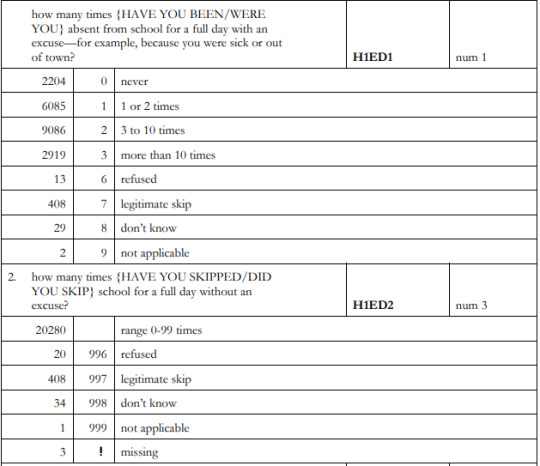

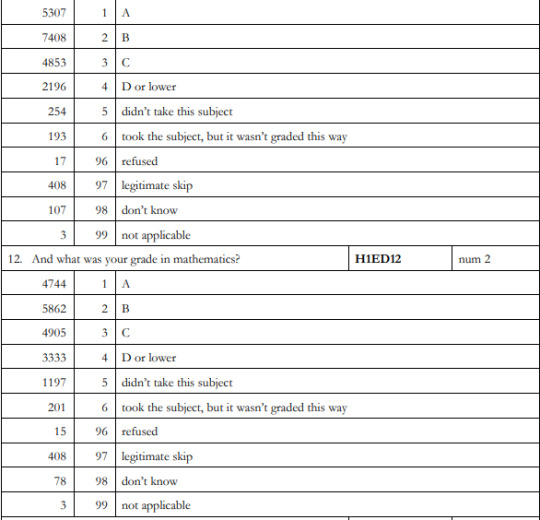
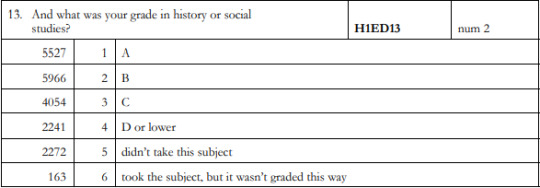
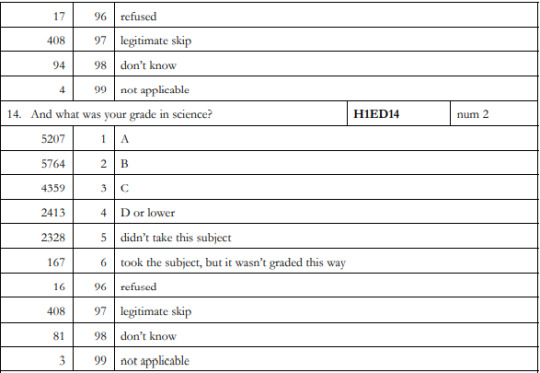

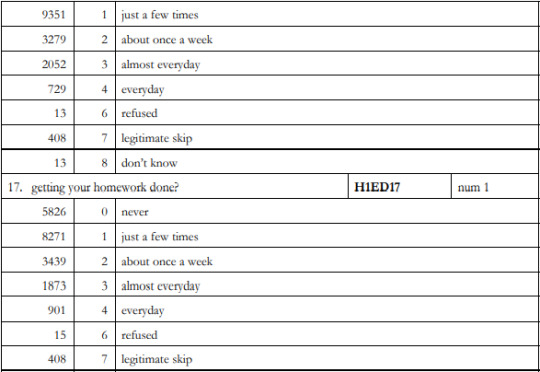

1 note
·
View note